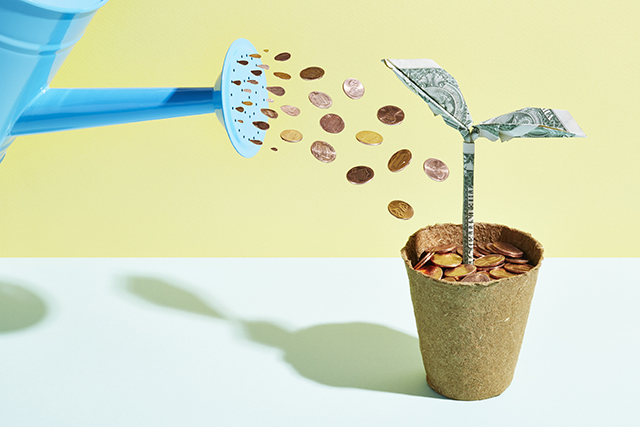In the confusing world of finance, savings accounts can seem like an outlier – too straightforward to be complicated. You put money you want to save into an account, it earns interest, you take it out when you need it, with a little more money than you started.
Simple enough, right? Not quite. The trick is that there are several types of savings accounts and they are not all created equal. One such savings product is a money market account. This type of account stands out in that it blends several defining characteristics of other savings accounts to create a unique opportunity for financial growth and flexibility.
What is a money market account?
A money market account is an interest-bearing deposit account with a bank or credit union. As a customer deposits money into an account, those funds earn interest, thus increasing the customer’s initial deposit. Unlike similar types of savings accounts, money market accounts typically come with checking and debit card privileges.
Money market accounts offer consumers a hybrid option between traditional savings accounts and certificates of deposit, with a higher interest rate than the former and greater accessibility to funds than the latter.
What are the pros and cons of money market accounts?
There are advantages and disadvantages to owning a money market account. On the plus side, you’ll receive a higher interest rate than on a traditional savings account. You’ll also be able to easily access your money should you need to. Many savings accounts, such as certificates of deposit, penalize customers for withdrawing funds early. Finally, the Federal Deposit Insurance Corporation insures money market accounts. If the bank goes out of business, you won’t lose your deposit.
But a money market account is not for everyone. Generally, financial institutions require a significantly higher account minimum, which you may find prohibitive. There may also be monthly fees associated with the account.
And although money market accounts also allow check writing and debit card usage, you are limited to six such transactions each month. You may find yourself needing to write a check but forced to wait for the calendar to turn or be subjected to a penalty.

What about interest rates?
Customers can often get a locked-in interest rate for a set period of time when opening an account. From that point, however, the interest rate can fluctuate. If the rate drops, so does your yield. Conversely, the rate could increase over time and you’ll find yourself with more funds than you anticipated.
This is a different scenario than one you’d experience with a Certificate of Deposit. Owners of CDs are protected from downturns in the market. The interest rate locked in during the initial deposit lasts for the duration of the CD. However, if the CD matures when interest rates are low, and an owner wants to renew, they’ll be forced to do so with a lower rate.
Who is a money market account right for?
As with any financial decision, choosing a money market account depends largely on your own financial situation and goals. Fortunately, the flexibility afforded in a money market account can make it an ideal choice.
Money market accounts are good options for those who want to earn interest but don’t want their money locked away. It provides a sense of security knowing that should an emergency arrive, you can access your money at that time. It also allows you to retain some financial normalcy with its debit card and check writing privileges.
The major condition that can limit individuals from pursuing money market accounts is the amount of money needed to open one. As mentioned previously, most banks will require both a high minimum deposit and a high balance. Should you fall under the minimum, you may be subjected to fees.
Before you open a money market account, ask yourself two questions: “Do I have a large enough balance?” And, “Am I going to be making major withdrawals that could drop my balance below the minimum?” The appeal of a savings account is that your money is earning for you. It defeats the purpose if you’re forced to pay those earnings back to the bank.













